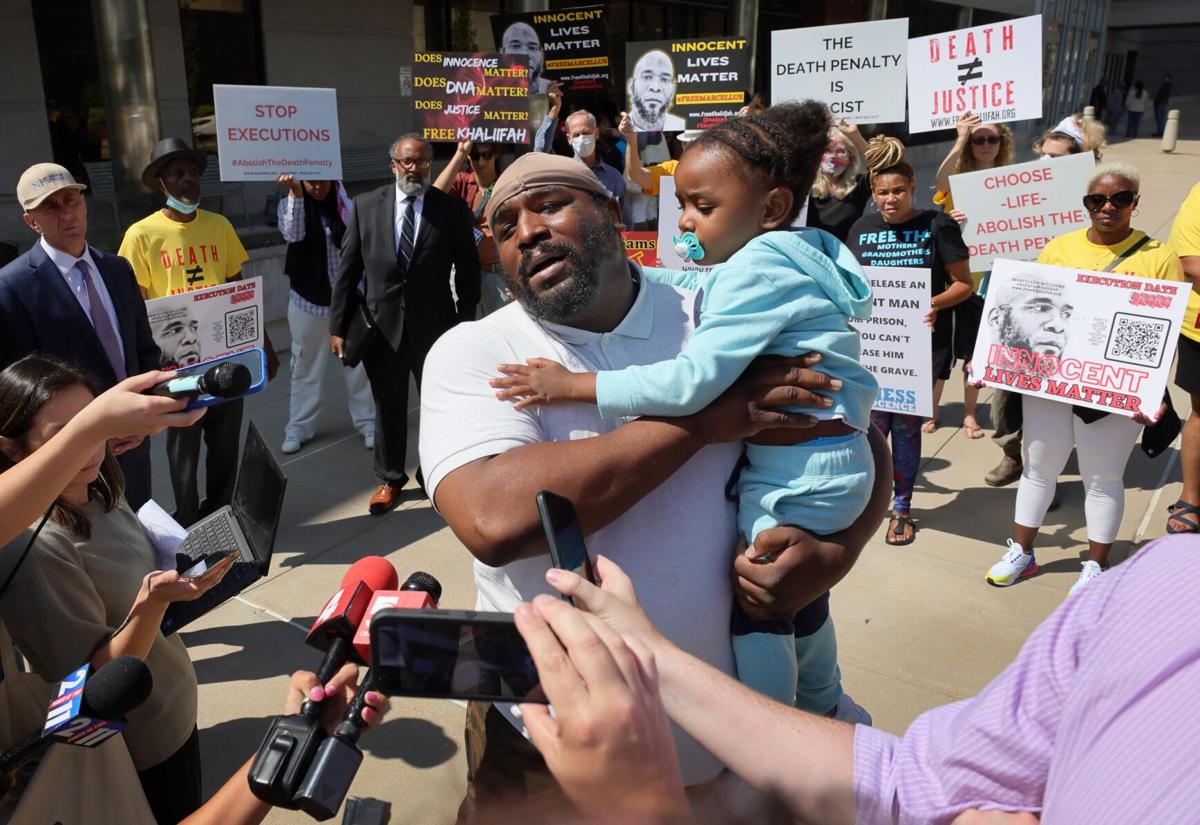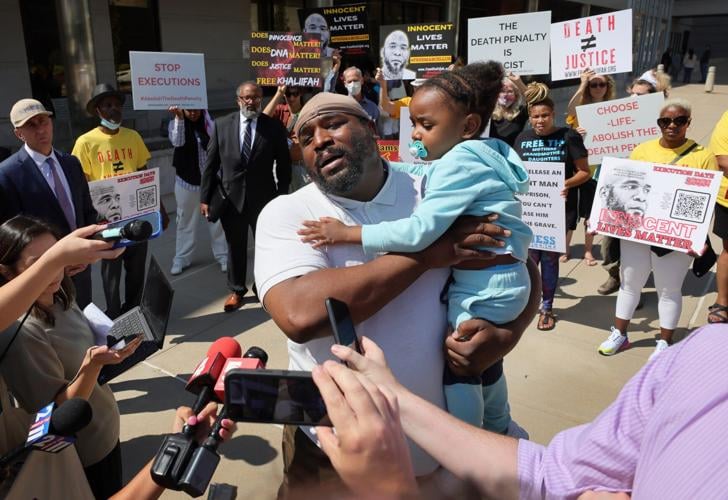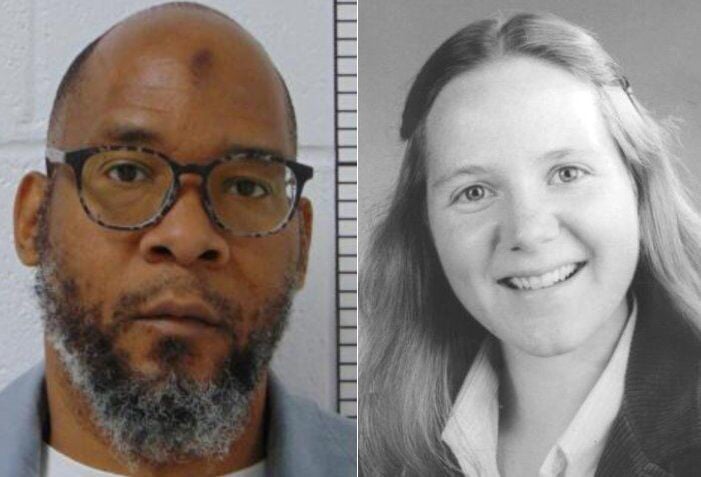ST. LOUIS COUNTY â Marcellus âKhaliifahâ Williams is now asking the U.S. Supreme Court to halt his execution and review a claim that his due process was violated when Gov. Mike Parson broke up a review board before it could reach a conclusion about his innocence.

Williams
The filings with the countryâs highest court come six days before Williams is scheduled to die, and about a day after lawyers submitted two separate filings to Missouriâs supreme court and the Missouri Court of Appeals Eastern District.
Missouri U.S. Rep. Cori Bush on Wednesday said she sent a letter to Parson urging him to grant Williams clemency and halt the execution.
âProceeding with the execution of Marcellus Williams would be a grave injustice and would do serious and lasting harm,â she wrote.
People are also reading…
As of Wednesday, Williams was still set to die by lethal injection next week for the 1998 murder of former Post-Dispatch reporter Felicia âLishaâ Gayle in 1998 in her University City home.
Williamsâ writ of certiorari asked the U.S. Supreme Court to revisit the question of whether a prisoner has due process rights in executive clemency proceedings.
The filing explains that in 2017, then-Gov. Eric Greitens granted a stay of execution for Williams and appointed a board of inquiry, made up of retired judges, to review Williamsâ innocence claim. The board was supposed to issue an opinion on whether clemency should be granted.
But six years later, Parson dissolved it. It is unclear whether the board ever made a decision.
Williams filed a civil action challenging the dissolution and the trial court ruled that Parsonâs action exceeded his authority under state law and deprived Williams of due process.
The Missouri Supreme Court disagreed and held that prisoners have no due process rights in clemency proceedings. Parson then scheduled the September execution date.
On Monday, St. Louis County Prosecuting Attorney Wesley Bellâs office asked the Missouri Supreme Court to review St. Louis County Judge Bruce Hiltonâs ruling on Thursday that upheld Williamsâ first-degree murder conviction.
The following day, Williamsâ team of attorneys announced they had filed a motion asking the Missouri Court of Appeals Eastern District to reconsider its 2010 denial of Williamsâ claim that a trial prosecutor unconstitutionally removed Black prospective jurors because of their race. The almost 400-page motion laid out new evidence from trial prosecutor Keith Larnerâs testimony during a day-long Aug. 28 innocence hearing.
Any of the three courts could issue a stay on Williamsâ execution to give the judges time to review the claims.
Williams was convicted in 2001 of brutally killing Gayle. She was found by her husband and had been stabbed 43 times.
He was sentenced to death by a jury made up of 11 white people and one Black person.
Williams, who is Black, has unsuccessfully appealed and challenged his first-degree murder conviction for more than two decades, ultimately taking the case to the Missouri Supreme Court.
In January, Bellâs office filed to vacate Williamsâ conviction, arguing he was innocent.
Eight months later, in August, Hilton heard hours of testimony rehashing evidence that focused on contamination of DNA on the murder weapon, potential racial bias in the jury selection and, in Williamsâ lawyerâs view, the unreliable witnesses on which much of his case hung.
Hilton said that Williamsâ claim of innocence âunraveledâ when an Aug. 19 DNA report showed the DNA profiles on the murder weapon were consistent with Larner and an investigator on the original case â which contradicted previous claims that the killerâs DNA was on the knife and would prove Williams was innocent.
â(Williamsâ) remaining evidence amounts to nothing more than re-packaged arguments about evidence that was available at trial and involved in Williamsâ unsuccessful direct appeal and post-conviction challenges,â Hilton wrote in his ruling.
Williams and his defense team have maintained his innocence, and have repeatedly pointed out that no physical evidence connects him to the crime other than a stolen laptop he sold to a neighbor.
The prosecutionâs two main trial witnesses â Williamsâ former cellmate and an ex-girlfriend â have since died.
Nimrod Chapel, president of Missouri NAACP, speaks to reporters outside the courthouse in Clayton about a deal prosecutors reached with Marcellus âKhaliifahâ Williams that changes Williams death sentence to life in prison without the possibility of parole on Wednesday, Aug. 21, 2024. The change in sentencing came about five weeks before Williams' scheduled execution date for the murder of Lisha Gayle, who was stabbed 43 times in her suburban home in August 1998. He was convicted of the killing in a 2001 trial.













